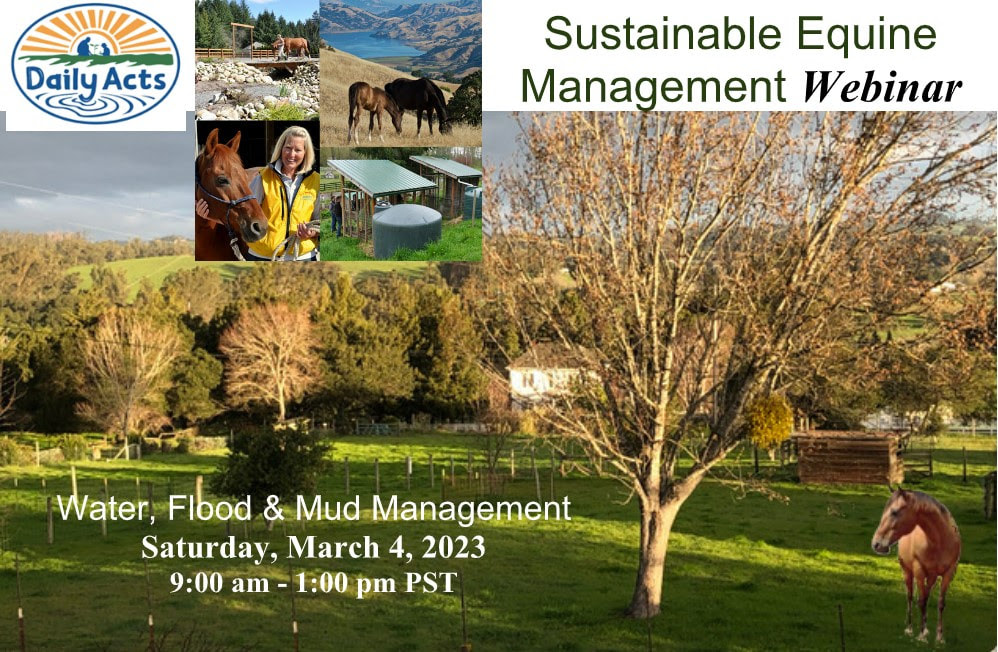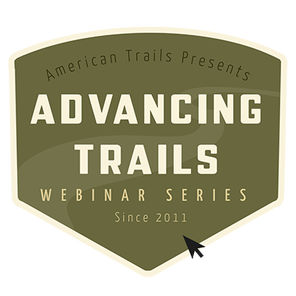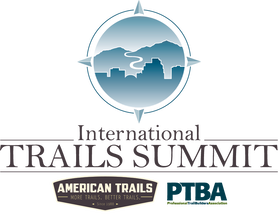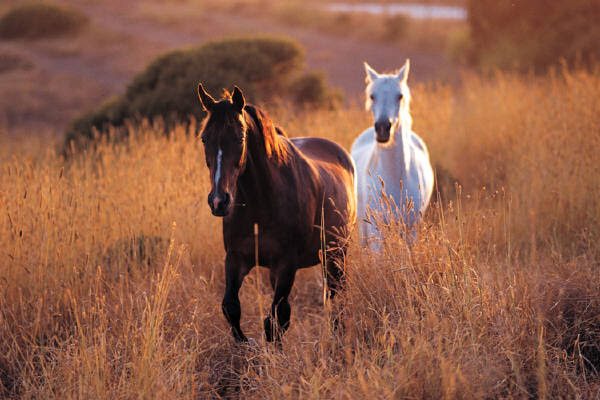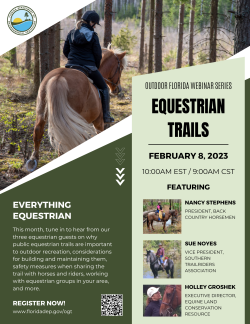Past Webinars of Interest
|
Sustainable Equine Management Webinar
Water, Flood, and Mud Management March 4, 2023 at 12:00 - 4:00PM EST / 9:00 AM - 1:00PM PST Finding solutions to problems caused by excessive water on farms is incredibly important, especially in light of recent heavy rains and flooding across the United States. Daily Acts, in cooperation with ELCR and other conservation organizations, will host a seminar to address these issues. This webinar will show innovative management solutions to mitigate problems caused by both excessive rain and drought. Alayne Blickle, creator and CEO of Horses for Clean Water, an award-winning environmental education program for horse owners, is the main webinar presenter. You can learn more here. REGISTER NOW |
|
The Trails Safe Passing Plan (TSPP) Stop! Speak and Stand Back Webinar
March 30, 2023 at 10:00 AM to 11:00 AM (Pacific Time) In this educational webinar, hosted by ELCR conservation partner American Trails as part of its Advancing Trails Webinar Series, you will learn how to practice, promote, and share the Trails Safe Passing Plan (TSPP) of Stop! Speak and Stand Back and how this safety action plan can be used on your websites, offered to trail user groups during meetings, delivered to land management teams for public safety announcements and used at trailheads and kiosks. Webinar presenters include:
Learn More and Register Here |
International Trails Summit
The premier opportunity for the worldwide trails community
The premier opportunity for the worldwide trails community
|
Every two years American Trails sponsors the International Trails Summit (formerly Symposium) to bring together trail and greenway advocates, managers, planners, and users, as well as tourism and business interests. The Summit is the largest gathering of all trail interests— professionals, managers, and users who believe their combined voices are the best way to strengthen trails for everyone.
During the week of April 17, 2023, American Trails (AT) and the Professional TrailBuilders Association (PTBA) will join forces to co-host the International Trails Summit (a collaborative effort of the 25th International Trails Symposium and Training Institute and the Sustainable Trails Conference) at the Nugget Casino Resort in Reno, Nevada. The combined, high-impact event will convene a diverse trail and outdoor community to learn, build relationships, and find solutions to the challenges of developing and elevating outdoor recreation opportunities for all. The joint conference will also feature the World Trails Network – Hub for the Americas (WTN-Americas). A Horse Trails Caucus will be held during the International Trails Summit on Monday, April 17, from 10am-12pm at the Nugget Casino Resort. To learn more about the Horse Trails Caucus, you can contact Candace Gallagher of American Trails at [email protected] Learn More and Register Here! |
Trail Funding Opportunity
National Forest System Trail Stewardship Partner Funding Program
National Forest System Trail Stewardship Partner Funding Program

The National Forest System Trail Stewardship Partner Funding Program is a partnership between the National Wilderness Stewardship Alliance (NWSA) and the USDA Forest Service. The program is intended to encourage and support volunteer and stewardship group trail maintenance accomplishments and the existing trail deferred maintenance backlog on the National Forest trail system.
Funds are available to trail and stewardship organizations to improve trail maintenance of National Forest System Trails. The ideal project proposal encourages volunteer and stewardship group engagement over a broad area of district or forest, and covers an extended length of time. Grants range from $2,000 - $20,000 and require either a non-federal cash or in-kind match of at least 1:1.
For more information or to apply for a National Forest System Trail Stewardship Partner Funding Program go to: www.wildernessalliance.org/trail_funding
The application deadline for 2023 grant program funding is April 15, 2023.
Funds are available to trail and stewardship organizations to improve trail maintenance of National Forest System Trails. The ideal project proposal encourages volunteer and stewardship group engagement over a broad area of district or forest, and covers an extended length of time. Grants range from $2,000 - $20,000 and require either a non-federal cash or in-kind match of at least 1:1.
For more information or to apply for a National Forest System Trail Stewardship Partner Funding Program go to: www.wildernessalliance.org/trail_funding
The application deadline for 2023 grant program funding is April 15, 2023.
Equine Land is for Everyone
At ELCR, we believe that land conserved for equine use is not only good for horses, owners, wildlife, the economy, and our environment but it is also good for the soul of every person who is fortunate enough to experience the land and the animals who live on it.
If you appreciate the value of conserving land for equine use in your community and beyond, please help us to continue our efforts to bring awareness of the important contributions that equines and equine land make to our communities and support efforts to protect horse lands across the country.
We invite you to join our growing community of supporters - because we simply can't do the work without the support of friends like you!
If you appreciate the value of conserving land for equine use in your community and beyond, please help us to continue our efforts to bring awareness of the important contributions that equines and equine land make to our communities and support efforts to protect horse lands across the country.
We invite you to join our growing community of supporters - because we simply can't do the work without the support of friends like you!
|
ELCR works through our Conservation Members and Partners to raise awareness of issues driving loss of horse lands and to support local action to keep land open to horses. Please join us today.
|
ELCR is wholly funded by charitable contributions and memberships. Your donation helps us to expand our outreach and grow awareness about conserving land for horses.
|
Follow ELCR on Facebook, Twitter, and Instagram for the latest updates!
The more people we reach, the more equine lands can be saved!
STAY CONNECTED
ELCR Newsletter - January 2023
Trail Etiquette Resource Guide Now Available
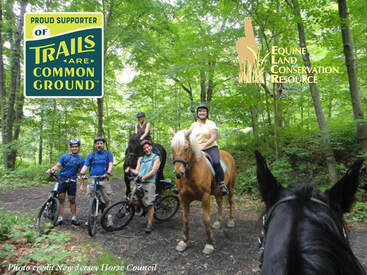
Outdoor recreation numbers are at an all-time high across the country. As a result, equestrians should expect to have more encounters with recreational trail users beyond just equestrians when out on the trails.
Recognizing this trend, in early 2021, ELCR joined together with other organizations from across the country representing various trail user groups, including Back Country Horsemen of America, to develop the Trails are Common Ground (TaCG) campaign aimed at elevating the importance of respectful, inclusive, safe, and enjoyable experiences on trails for everyone.
In support of the TaCG initiative, ELCR recently highlighted several existing educational resources on trail etiquette and safe passing plans for encountering equestrians on the trails developed by various groups from across the country in Trail Etiquette and Safe Passing Plans When Encountering Equestrians. This collection of resources provides valuable insight on how horses differ from both humans and dogs, on how they perceive and react to the environment around them and other important information and unique tips.
This is a great resource to share with your trail community to educate all trail user groups about encountering horses on trails to help ensure we are all sharing the trails in an inclusive, safe, and respectful way.
Recognizing this trend, in early 2021, ELCR joined together with other organizations from across the country representing various trail user groups, including Back Country Horsemen of America, to develop the Trails are Common Ground (TaCG) campaign aimed at elevating the importance of respectful, inclusive, safe, and enjoyable experiences on trails for everyone.
In support of the TaCG initiative, ELCR recently highlighted several existing educational resources on trail etiquette and safe passing plans for encountering equestrians on the trails developed by various groups from across the country in Trail Etiquette and Safe Passing Plans When Encountering Equestrians. This collection of resources provides valuable insight on how horses differ from both humans and dogs, on how they perceive and react to the environment around them and other important information and unique tips.
This is a great resource to share with your trail community to educate all trail user groups about encountering horses on trails to help ensure we are all sharing the trails in an inclusive, safe, and respectful way.
View the guide here
Don't Miss These Upcoming Webinars
|
Equestrian Trails Webinar
Part of the Outdoor Florida Webinar series February 8, 2023 at 10:00AM EST Tune in to hear from equestrian panelists, including ELCR’s Executive Director, Holley Groshek, on why public equestrian trails are important to outdoor recreation, considerations for building and maintaining them, safety measures when sharing the trail with horses and riders, working with equestrian groups in your area, and more. Attendees will include outdoor planning professionals, city managers, tourism and parks/recreation departments, etc., as well as the general public who are interested in preserving outdoor access. Learn more about this webinar here. REGISTER NOW! |
Follow ELCR on Facebook, Twitter, and Instagram for the latest updates!
The more people we reach, the more equine lands can be saved!
STAY CONNECTED
Roaring Fork Valley Horse Council
P.O. Box 127, Snowmass, Colorado 81654
* 501 (c)(3) non-profit organization *
[email protected] Facebook: www.facebook.com/keephorsesontrails/
Instagram: www.instagram.com/rfvhc/
